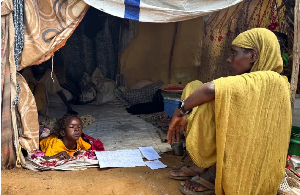The basic needs of life as generally accepted are: food, clothing and shelter. Of these shelter (housing) is largely immovable and requires the highest capital expenditure for many individuals. These defining characteristics make the provision of housing in modern society very challenging.
It is thus imperative that a lot of thought goes into the determination of location in relation to other activity areas that members of a household will be required to relate. These include work, school, shop, recreational centres, hospitals, police stations, fire stations, transport terminals, waste disposal sites etc.
The construction of houses by individuals, governments, and developers must therefore be well regulated and integrated into a master plan for all fixed infrastructure such as roads, power generation/distribution systems. Water production, waste management systems, schools, industries, churches, mosques, markets, transport terminals etc.
The STX deal did not fit into any such master plan, but the NDC Government has now finally thrown in the towel in this matter of housing units for members of our security forces, inter alia, by the South Korean company STX. The action brings to the fore a number of pertinent issues concerning the governance of this country, especially regarding the use of indigenous manpower and expertise in the execution of projects for Ghanaians.
The recent history of Ghana is replete with incidents of over-reliance by past governments on foreign support and assistance in the implementation of ideas and projects, in very sharp contrast to what the CPP tried to instil in the “Ghanaian - Consciousness” - being able to manage our own affairs. Situations such as the STX project and many others have unfortunately retarded the forward march of the country and its self esteem.
In a clear demonstration of the belief in the ability and capability of the Ghanaian worker the Convention People’s Party (CPP ) turned an otherwise unknown village called Tema into a Residential Paradise for workers and their families, virtually overnight with local expertise, manpower and a heavy dose of the “can-do” attitude.
In a little over five years the CPP government constructed Tema Communities 1 to 10, providing families with *18,000* descent homes using local expertise, manpower and management. The CPP government encouraged the Ghanaian worker to be involved in the development of the country’s infrastructure by establishing the requisite local institutions to spearhead the development efforts of the country as enshrined in the various “Development Plans”.
Thus the State Housing Corporation, Ghana Airways, State Hotels Corporation and many others were all established to provide employment to Ghanaians and also demonstrate the confidence that the leadership of the country then had in the laudable skills and expertise of the Ghanaian worker. In short, the CPP Government “looked inward” and only where in very rare cases, the necessary expertise was unavailable locally or immediately, did the CPP Government “look outward”
What we need to learn from the Koreans is Korean self-belief; discipline and nationalism which helped develop their nation.
We have not grown the institutions that would enable us develop our housing industry. STX would essentially have been developing someone else’s market, someone’s steel, cement, glass, aluminium, tiles, plastics - all housing materials - and ultimately exporting Ghanaian jobs.
The housing challenge is immense and the entire body of knowledge that facilitates its delivery must be developed if we are to successfully address the 1.5 million housing deficit, with active participation by the State in key areas, as has been done in other countries.
South Korea has more than a dozen institutions researching, regulating and promoting their housing industry. These include institutions like the Korea National Housing Corp., Korea Housing Guarantee Company Ltd., Korea Iron and Steel Institute, Korea Concrete Institute, among others. These are either government or quasi-government institutions that have enabled Korea construct 500,000 houses per year with a housing supply ratio (number of housing units per household) exceeding 100 percent. Ghana’s ratio is less than 50 percent.
Affordable housing will materialize only if the State takes advantage of economies of scale in land management, bulk construction materials and credit (banking or financial) for real estate developers, among others. No country in the world has overcome its housing challenge without a strong intervention from the State. In the United States for example, Fannie Mae and Freddie Mac established during the New Deal era remained Government sponsored entities that until recently held over $5 trillion of asset backed guarantees.
Ghana has crossed the 50 percent urbanization mark and for the first time, more people are living in urban areas than rural areas. In anticipation of urbanization and household growth, the best way of addressing the housing crisis is to develop new growth centres and rejuvenate existing towns and cities. We must take advantage of new ways of addressing housing and plan our cities well, strengthen the Town and Country Planning Department, build new cities, do away with conflicting planning laws; cf. Town Planning Ordinance CAP 84, Local Government Act - Act 462 and NDPC Act 480. China has planned and modelled out 220 cities of one million population each that will be built by 2030 and we must use similar strategies to develop our cities.
The STX fiasco, the latest in a string of disappointments that the good people of this country have been made to suffer at the hands of past governments, should encourage the NDC Government and successive ones to ensure that Ghana returns to an era of self-reliance where the Ghanaian worker is motivated and encouraged to develop that sense of self confidence and that “can-do” spirit which was so abundant under the CPP Government and which enabled the CPP Government to build over four hundred (400) operational factories across the country in a short span of just 9 years
The construction of descent and affordable housing for the Ghanaian worker is at the top of the agenda for a future CPP Government, and this will be pursued very seriously.
A CPP Government will not only ensure that the Ghanaian worker lives in descent accommodation but that he/she is also motivated appropriately to own the accommodation he/she occupies. This policy will be executed in close collaboration with all stakeholders in the country’s, developmental agenda, and in line with the new principles and thoughts outlined above.
*John T, Abebrese* *CPP Shadow Minister for Housing***
*www.conventionpeoplesparty.org*
General News of Sunday, 15 April 2012
Source: Nii Armah Akomfra






![Emmanuel Tetteh George and his wife Ruth Ewoenam [Image Credit: Manuel Photography] Emmanuel Tetteh George and his wife Ruth Ewoenam [Image Credit: Manuel Photography]](https://cdn.ghanaweb.com/imagelib/pics/943/94388192.295.jpg)





